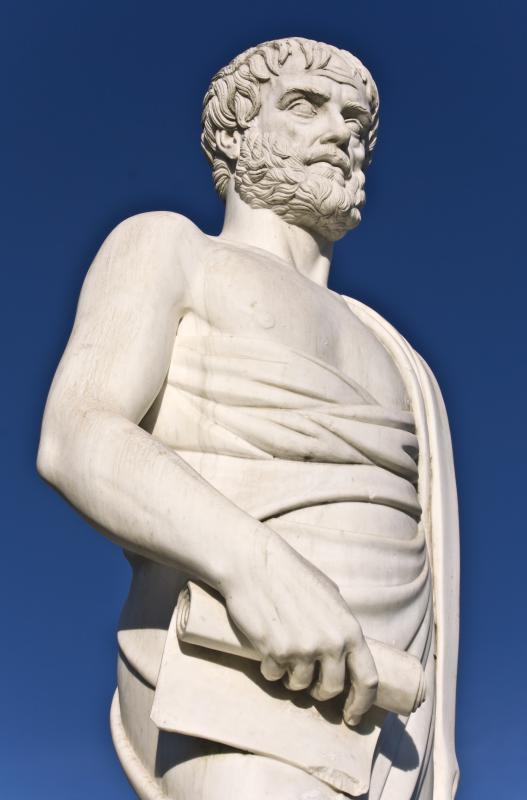At WiseGEEK, we're committed to delivering accurate, trustworthy information. Our expert-authored content is rigorously fact-checked and sourced from credible authorities. Discover how we uphold the highest standards in providing you with reliable knowledge.
What is the Law of Nature?
The law of nature is the concept that the natural world provides a certain level of legal rights. Based on this theory, it stands to reason that these legal conditions provided by the natural order are consistent across geographical regions and political borders, meaning everyone in the world has the same natural rights. Natural law transcends the legal authority of a given community, state or national government. At its core, the law of nature is the prevalent morality of society.
Much of the concepts of natural law have their origins within Greek philosophy. Socrates, Plato and Aristotle all spoke of the existence of the law of nature, with the latter writing extensively in his book Nicomachean Ethics. Aristotle in particular broached the theory that the best politically-minded societies adopted the concept of natural law to rule its populace. He also pointed out that while human laws were fallible, natural laws were not. This became the basis of stoicism, the ideology that became the centerpiece of Roman legal theory.

Throughout history, the law of nature has had a profound influence over the standards of modern society and political theory. Thomas Hobbes postulated the social contract theory using the law of nature. This addressed the natural predisposition of humans to establish states in an effort to create natural social order. Likewise, John Locke used the principles to contend the importance of liberalism and the idea that liberty and equality were part of the natural order.

In Great Britain, the law of nature became highly important in the 17th and 18th centuries. English common law adopted the philosophy through its decisions in courts and tribunals. The concept was also adapted into the fundamental justification of the American Revolution. In particular, the United States Declaration of Independence addressed human freedom as a product of natural law.

In philosophy, the law of nature is the antithesis of positive law, those legal rights issued by humans upon one another. Often referred to as natural justice, these rights do not need the authorization of a government or document. Positive law, on the other hand, requires the will of the people or an entity with authority to justify its existence. In terms of the general political spectrum, more liberal philosophies often side with the law of nature, while more conservative values support positive law.
AS FEATURED ON:
AS FEATURED ON:













Discuss this Article
Post your comments